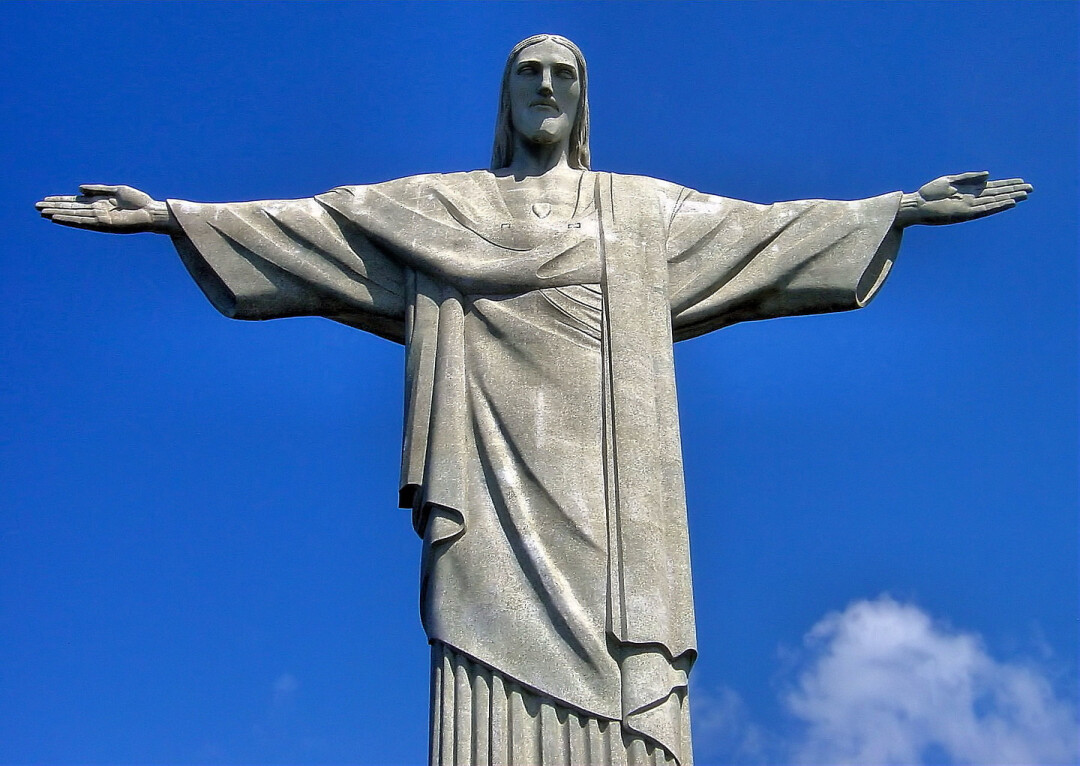
“For I am convinced that neither death, nor life, nor angels,
nor principalities, nor things present, nor things to come,
nor powers, nor height, nor depth, nor any other created thing,
will be able to separate us from the love of God, which is in Christ Jesus our Lord.”
Upon Mount Corcovado stands a colossal 98 feet tall Arts Deco statue
with outstretched arms overlooking the city of Rio De Janeiro, Brazil,
almost as if the statue was offering a perpetual “Come to me,
all you who are weary and burdened, and I will give you rest.
Take my yoke upon you and learn from me, for I am gentle and humble in heart,
and you will find rest for your souls. For my yoke is easy and my burden is light.”
The name of this architectural marvel rooted in freedom is Christ the Redeemer,
a portrait of God’s boundless love for us which only scrapes the surface
despite being the largest Art Deco-style sculpture in the world
and one of the official modern Seven Wonders of the World.
The statue’s concept was initially conceived to honor
Princess Isabel because of her role in abolishing slavery in Brazil.
The idea later evolved by way of The Roman archdiocese of Rio de Janeiro’s proposals,
and upon ceremonially laying the base of the statue on April 4, 1922
to commemorate Brazil’s centennial independence day from Portugal,
a competition was held to find a worthy design. Heitor da Silva Costa was chosen
and his sketch detailed Jesus holding a cross in his right hand and the world in his left.
With the help of Carlos Oswald and French sculptor Paul Landowski,
the sketch and final product was amended to have Jesus only outstretching his arms.
The construction lasted from 1926 to October 21, 1931 and has been standing for nearly 94 years.
So, what does a Brazilian landmark have to do with us living in the Northern Hemisphere?
Everything.
I have often struggled to understand the depth of God’s love,
the why, and the how a sinner like me can be worthy of such love.
It is powerfully poetic how the sculpture was initially conceived
as a tribute to a royal who formally abolished slavery.
The theoretical knowledge and truth of 1 John 1:9, being,
“If we confess our sins, He is faithful and righteous to forgive us our sins
and to cleanse us from all unrighteousness,” has been a great help to me,
but it is by experiencing Luke 7:46-48 that I’ve learned the most about God’s love
and who I am by relation; it is by being forgiven much that I learned to love much.
So, although I have limited grasp, that is the beauty of it, just like the statue,
Christ the Redeemer, in all its grandeur and permanence, only scratches the surface
because as Paul said in Romans 8:38-39, of which I can testify,
“For I am convinced that neither death, nor life, nor angels,
nor principalities, nor things present, nor things to come,
nor powers, nor height, nor depth, nor any other created thing,
will be able to separate us from the love of God, which is in Christ Jesus our Lord.”
